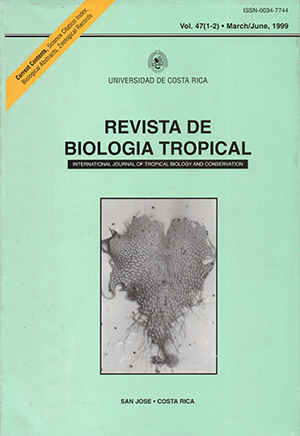Abstract
Fifty one nests and 200 cells of Trypoxylon (Trypargilum) lactitarse were obtained from trap-nests (cut bamboo stems) in Santa Carlota Farm (in two habitats: Itaoca Section-IS and Santana Section-SS), Cajuru and on the São Paulo University Campus, Ribeirão Preto (RP), both in the State of São Paulo, Brazil. The prey (spiders) of 18 cells from IS, 38 from SS and 70 from RP were identified. Nesting most frequently occurred during the hot and wet seasons (September to April). T. lactitarse preyed upon representatives of ten spider families. Araneidae (96.6%) (orb-weaver spiders) were the most frequent. Eustala sp.1 was the most frequently collected species in the three habitats (31.6% in IS, 20.1% in SS and 48.7% in RP), followed by Acacesia hamata (19.5%) and Alpaida leucogramma (10%) in IS, by Parawixia audax (16%) and A. hamata (15.4%) in SS and by P. audax (17.9%) and Eustala sp.2 (12%) in RP. The sizes of the reproductive niches were significantly different. There was a positive correlation between reproductive niche width and evenness.
This work is licensed under a Creative Commons Attribution 4.0 International License.
Copyright (c) 1999 Revista de Biología Tropical

